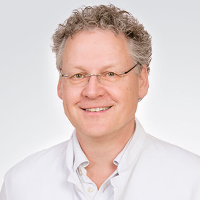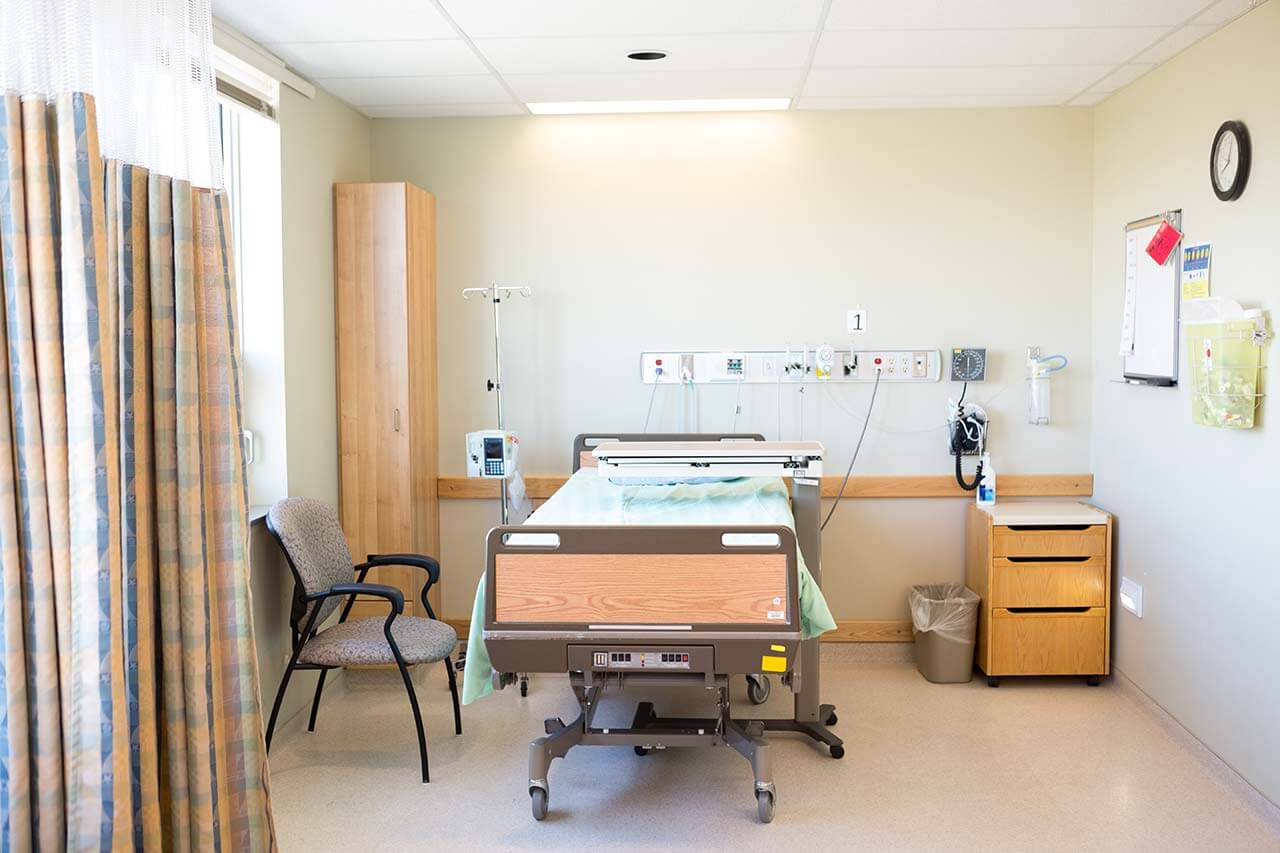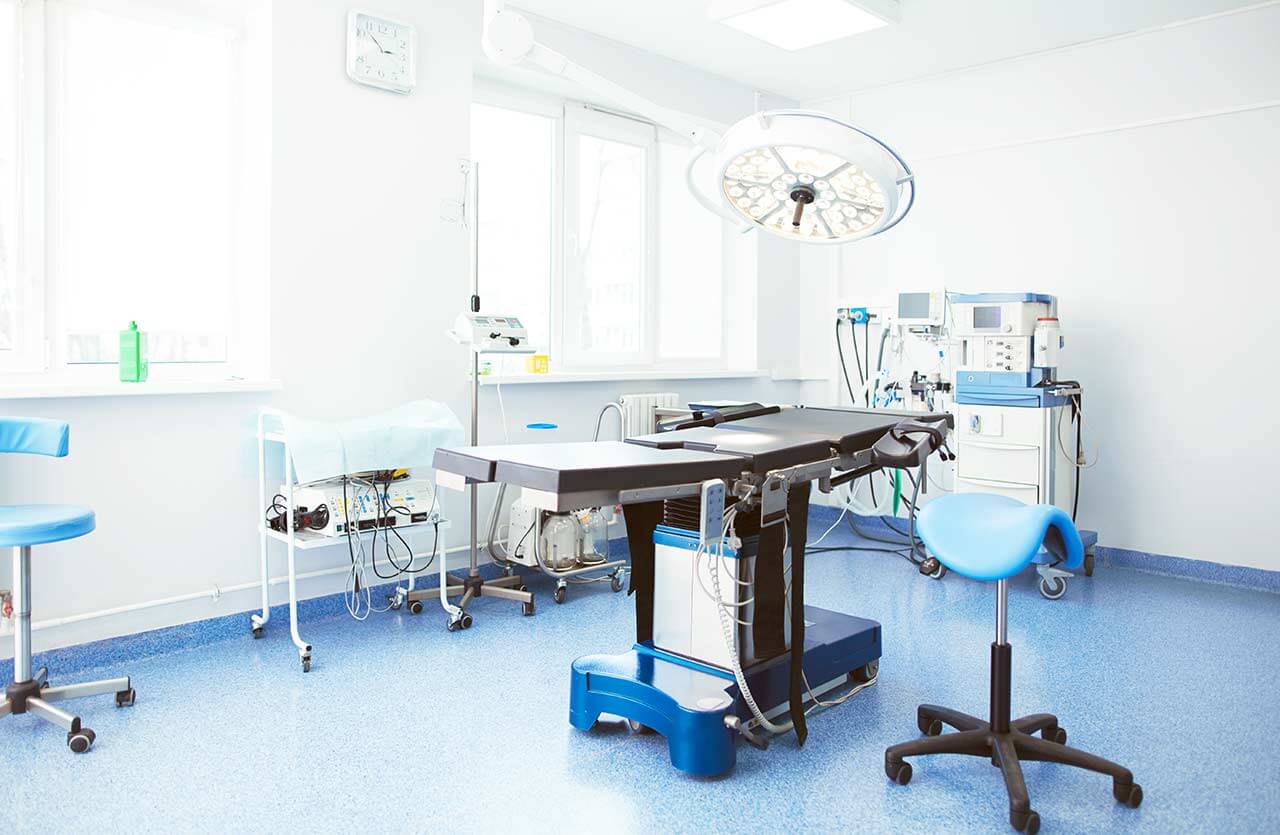
The program includes:
- Initial presentation in the clinic
- clinical history taking
- review of medical records
- physical examination
- laboratory tests (on indications):
- complete blood count
- biochemical analysis of blood
- inflammation indicators (CRP, ESR)
- indicators blood coagulation
- neurological examination
- CT/MRI scan (one region)
- functionality x-ray
- neuropsychological tests (on indications)
- differential diagnosis with other neurological diseases
- consultation of related specialists
- symptomatic specific treatment
- the cost of essential medicines and materials
- nursing services
- control examinations
- full hospital accommodation
- developing of further guidance
Required documents
- Medical records
- X-ray examination, MRI/CT scan (if available)
Service
You may also book:
 BookingHealth Price from:
BookingHealth Price from:
About the department
The Department of Neurology at the Schlosspark Hospital Berlin offers the full range of diagnostic and therapeutic services for patients with diseases of the nervous system. The department's highly qualified medical team is deservedly proud of their successful results in the treatment of stroke, neuromuscular diseases, multiple sclerosis, Parkinson's disease, dizziness, and balance disorders. Stroke patients are treated in a state-of-the-art Stroke Unit. It is worth noting that the department is a member of the Berlin Stroke Alliance and collaborates with experts in neurosurgery and neuroradiology from highly specialized departments of the hospital. The department's doctors specialize in conservative treatment of neurological pathologies using various drug therapy regimens, therapeutic exercises, physiotherapy, ergotherapy, and other methods. A total of 50 beds are available for hospital stays, and patients are also admitted on an outpatient basis. The doctors and nursing staff always appreciate the individual needs and wishes of each patient, striving to provide them with effective treatment and care. The department is headed by Prof. Dr. med. Thomas Lempert.
The department offers the services of an advanced Stroke Unit certified by the German Stroke Foundation (Deutsche Schlaganfall-Hilfe), so patients can be confident that all the standards and requirements of modern medicine are met here. A highly competent multidisciplinary team of doctors, consisting of neurologists, physiotherapists, occupational therapists, speech therapists, and specially trained nursing staff, work in the Stroke Unit. The specialists mostly deal with ischemic stroke, which occurs in more than 80% of cases. The most effective treatment for an ischemic stroke is thrombolytic therapy, which involves the local administration of drugs to dissolve the blood clot and restore normal blood supply to the affected brain area. Once the patient's condition normalizes, physiotherapists, speech therapists, and occupational therapists begin to work with them. The intensity of treatment at this stage depends on the patient's rehabilitation potential.
The medical facility has vast experience in treating patients with movement disorders of neurological genesis, such as Parkinson's disease, essential tremor, myoclonia, chorea, dystonia, and gait abnormalities. Treatment is based on an individually elaborated drug therapy regimen. Physiotherapy, massage, therapeutic exercises, and other methods also play an important role in achieving the desired results.
The department treats patients with multiple sclerosis. Multiple sclerosis is an autoimmune nervous system disease that causes generalized damage to the nerve endings. The main manifestations of multiple sclerosis include muscle weakness, dizziness, impaired coordination, gait abnormalities, decreased sensitivity, vision loss, general weakness, and apathy. As multiple sclerosis progresses, the severity of symptoms intensifies. Most patients are diagnosed with the relapsing-remitting form of the disease, characterized by alternating periods of exacerbations and remissions. The secondary progressive form of multiple sclerosis is also quite common, in which periods of exacerbation and remission also alternate, but due to the aggravation of lesions to the nervous system, periods of exacerbation become more severe and occur more frequently. Multiple sclerosis is an incurable condition, but the department's neurologists have at their disposal modern methods to bring the disease under control and prevent its rapid progression. The first-line treatment is drug therapy with immunosuppressants, hormones, immunomodulators, and other medications. Massage, physiotherapy, and therapeutic exercises also provide the patient with a good additional effect to drug therapy.
The department's doctors have unique competencies in the treatment of dizziness and balance disorders. They have vast experience in the treatment of benign paroxysmal positional vertigo, vestibular neuritis, Meniere's disease, vestibular migraine, psychogenic dizziness, and all types of gait abnormalities. The first-line treatment for dizziness and balance disorders is an individually elaborated physiotherapy regimen, while drug therapy is an additional measure. In some cases, the department's specialists may also resort to psychotherapy. The last-line treatment is a surgical intervention, but it is required only in complex clinical cases.
The department's key clinical focuses include:
- Diagnostics and treatment of stroke
- Diagnostics and treatment of movement disorders of neurological genesis
- Parkinson's disease
- Essential tremor
- Myoclonus
- Chorea
- Dystonia
- Gait disorders
- Diagnostics and treatment of multiple sclerosis
- Diagnostics and treatment of myasthenia gravis
- Diagnostics and treatment of neuromuscular diseases
- Polyneuropathies
- Neuromuscular transmission disorders
- Diagnostics and treatment of dizziness and balance disorders
- Benign paroxysmal positional vertigo
- Vestibular neuritis
- Meniere's disease
- Vestibular migraine
- Syncope caused by hypotension
- Psychogenic dizziness
- All types of gait abnormalities
- Diagnostics and treatment of other neurological disorders
Curriculum vitae
Higher Education
- 1979 - 1985 Medical studies, Free University of Berlin.
- 1983 Internship in the USA, University of Arizona.
- 1986 American State Exam, Clinical Part.
- 1987 Thesis defense. Subject: "Toxic plasma concentrations of phenytoin and phenobarbital in epilepsy treatment."
Professional Career
- 1986 - 1987 Assistant Physician, Department of Neurology, Schlosspark Hospital Berlin.
- 1987 - 1989 Internship, Department of Neurology, Grosshadern Hospital, Munich.
- 1989 - 1990 Assistant Physician, Department of Neurology, Charite University Hospital Berlin.
- 1992 - 1993 Assistant Physician, Department of Psychiatry, Vivantes Am Urban Hospital Berlin.
- 1993 - 1994 Senior Physician, Department of Neurology, Charite University Hospital Berlin.
- 1994 - 1996 Research Internship in the Human Movement and Balance Unit at the National Hospital for Neurology and Neurosurgery, London.
- 1997 Habilitation.
- 1996 - 2003 Senior Physician, Department of Neurology, Charite University Hospital Berlin.
- Since 2003 Head Physician, Department of Neurology, Schlosspark Hospital Berlin.
- Since 2005 Deputy Medical Director of the Schlosspark Hospital Berlin.
- Since 2010 Work in the Сommittee of the Barany Society for the International Classification of Vestibular Disorders and coordination of the International Group of Scientists for the Study of Vestibular Migraine.
- Since 2012 Member of the Drug Commission of the German Medical Association.
- 2012 Initiation of www.neurologyfirst.de (together with other specialists).
- 2015 Initiation of www.leitlinienwatch.de (together with other specialists).
- 2017 Author of "Dizziness: A Practical Approach to Diagnosis and Management" (with Adolfo Bronstein), which has been translated into 7 languages.
Photo of the doctor: (c) Schlosspark-Klinik GmbH
About hospital
The Schlosspark Hospital Berlin began its work in 1970 and, during this time, has gained an excellent reputation not only in Germany but also in the international medical arena. The Schlosspark Hospital Berlin is an academic hospital of the Charite University Hospital Berlin, which is one of the best medical centers in Europe and throughout the world. The successful clinical practice of the medical facility is based on an advanced medical and technical base, access to the very latest and most effective treatment methods, and the exceptional competence and experience of medical personnel. The hospital is located in the picturesque Charlottenburg Park, away from the hustle and bustle of the city, which contributes to the peace of mind of patients.
The hospital's bed fund includes 340 beds. Structurally, the hospital consists of 12 specialized departments with narrowly focused centers integrated into them, which are responsible for the treatment of a particular group of diseases. More than 14,000 patients are treated annually at the hospital. One of the priorities of the medical facility is emergency medical care. With an annual number of more than 10,000 surgical interventions, including operations of high complexity, the department is particularly interested in surgical treatment.
The hospital's medical team consists of more than 900 employees. The departments at the hospital are headed by professors who are well-known in the medical community and have impressive clinical experience and outstanding professional achievements. In the course of diagnostics and treatment, an individual approach is used for each patient, and his needs and wishes are also taken into account. The hospital pays due attention to patient care during the therapeutic process. Despite state-of-the-art medical equipment and the automation of many processes, a humane and respectful attitude towards the patient is the first priority for the doctors at the hospital. The specialists are always open to dialogue and do their best to achieve the best treatment outcomes.
Photo: (с) depositphotos
Accommodation in hospital
Patients rooms
The patients of the Schlosspark Hospital Berlin live in comfortable rooms with light colors. Each patient room has an ensuite bathroom with a shower and a toilet. The standard patient room includes a comfortable automatically adjustable bed, a bedside cabinet with a pull-out table, a wardrobe, a table and chairs for receiving visitors, a telephone, and a TV. Wi-Fi is available on the territory of the hospital. The hospital also offers enhanced-comfort rooms with a more exquisite design.
Meals and Menus
The patient and their accompanying person are offered three meals a day: breakfast, lunch, and dinner. A new menu is prepared for patients each week. Only high-quality and fresh products are used for cooking meals. The menu includes dietary and vegetarian dishes. The patient will be offered an individual menu if necessary.
There is a cozy cafe on the ground floor of the hospital that serves full breakfasts, a wide range of hot and cold drinks, delicious desserts, and snacks.
Further details
Standard rooms include:
Accompanying person
The accompanying person may stay with you in the patient room or at the hotel of your choice during the inpatient program.
Hotel
You may stay at the hotel of your choice during the outpatient program. Our manager will help you choose the best option.




